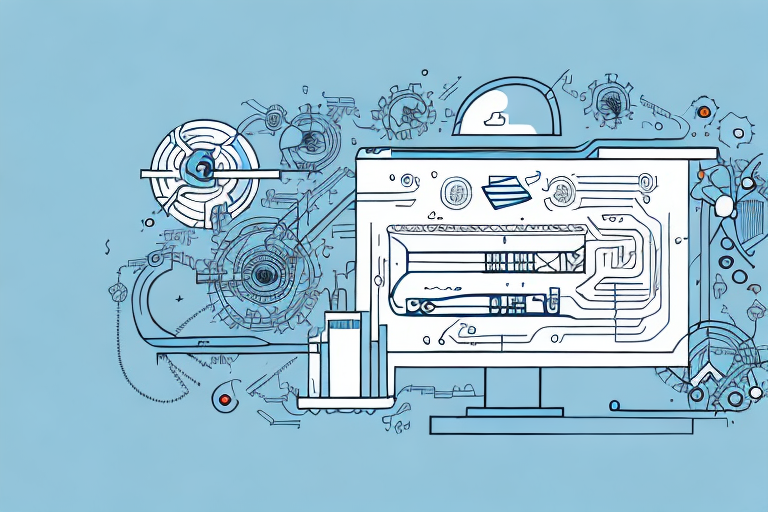Understanding RAS UPS Systems
In the digital era, businesses depend heavily on their technological infrastructure. Critical operations such as data centers and servers require uninterrupted power to function efficiently. A RAS UPS system (Redundant Array of Independent UPS) plays a crucial role in ensuring consistent power supply, safeguarding against disruptions that can lead to significant productivity losses and data breaches.
Basics and Functionality of RAS UPS
A RAS UPS system is designed to provide an uninterrupted power supply to essential components in IT infrastructure. It operates by maintaining multiple UPS units working in tandem, offering redundancy. This ensures that if one unit fails, others seamlessly take over, preventing any power interruption. The system's scalability allows businesses to adjust the number of UPS units based on their evolving power requirements.
Key Components of RAS UPS Systems
- UPS Modules: Deliver backup power to critical systems.
- REDbus Architecture: Facilitates communication and synchronization between UPS modules.
- Power Distribution Units (PDUs): Distribute power to IT equipment efficiently.
- Management Software: Monitors and manages the entire UPS system for optimal performance.
- Battery Banks: Provide additional backup power during outages.
Benefits of RAS UPS Systems
Investing in a RAS UPS system offers a multitude of advantages that enhance business continuity and protect valuable assets.
Uninterrupted Power Supply
RAS UPS systems ensure that critical business operations remain unaffected during power outages. According to a report by ShipScience, businesses experience an average downtime cost of $5,600 per minute. A reliable UPS system can significantly reduce these potential losses by maintaining continuous power supply.
Protection Against Power Surges and Fluctuations
Power surges and voltage fluctuations can damage sensitive electronic equipment. RAS UPS systems stabilize the power flow, protecting hardware from these disturbances and extending their lifespan. This not only safeguards your investments but also minimizes repair and replacement costs.
Scalability and Flexibility
RAS UPS systems are highly scalable, allowing businesses to expand their power infrastructure as needed. This flexibility is especially beneficial for growing companies, ensuring that their power backup solutions evolve in tandem with their increasing technological demands.
Types and Applications of RAS UPS Systems
Understanding the different types of RAS UPS systems and their applications is essential for selecting the right solution for your business.
Traditional vs. Modular RAS UPS Systems
- Traditional RAS UPS: Ideal for small to medium-sized applications with limited scalability. They offer basic redundancy and are cost-effective for smaller operations.
- Modular RAS UPS: Designed for large-scale applications, offering extensive scalability, redundancy, and flexibility. These systems can be customized to meet the specific needs of enterprises, making them suitable for data centers, hospitals, and other critical environments.
Industry Applications
RAS UPS systems are utilized across various industries:
- Data Centers: Ensures continuous operation and data integrity.
- Healthcare: Maintains critical medical equipment without interruption.
- Financial Services: Protects sensitive financial data and transaction systems.
- Manufacturing: Prevents downtime in automated production lines.
Selecting the Right RAS UPS System
Choosing an appropriate RAS UPS system involves evaluating several factors to align with your business needs.
Assessing Power Requirements
Determine the total power consumption of your IT infrastructure to ensure that the UPS system can handle the load. It's advisable to select a system with a capacity 20-30% higher than your current needs to accommodate future growth.
Evaluating Redundancy Levels
Higher redundancy levels provide greater protection against power outages but come at a higher cost. Assess your business's tolerance for downtime and balance it with your budget to determine the appropriate level of redundancy.
Scalability Considerations
Opt for a UPS system that can easily scale with your business. Modular systems are typically more scalable, allowing you to add or remove modules as your power needs change.
Budget Constraints
While RAS UPS systems are a significant investment, consider the long-term savings from reduced downtime and equipment protection. Compare different models and configurations to find a system that offers the best value for your investment.
Maintenance and Best Practices
Regular maintenance is crucial to ensure the longevity and reliability of your RAS UPS system.
Routine Battery Testing
Conduct regular tests on battery performance to identify and replace deteriorating batteries before they fail.
System Monitoring
Utilize management software to continuously monitor the health and performance of the UPS system. Promptly address any alerts or anomalies detected.
Firmware Updates
Keep the UPS system's firmware up to date to benefit from the latest features and security enhancements.
Physical Maintenance
Ensure that the UPS system is kept clean and free from dust or debris, which can impede cooling and overall performance.
Future Trends in RAS UPS Systems
The evolution of RAS UPS systems continues with advancements aimed at enhancing efficiency and functionality.
Integration with Intelligent Management Software
Future UPS systems will incorporate more sophisticated management software, enabling predictive maintenance and improved energy management.
Enhanced Modularity and Scalability
Developments in modular designs will allow for even greater scalability, making it easier for businesses to expand their power infrastructure seamlessly.
Increased Energy Efficiency
Advancements will focus on reducing energy consumption, aligning with global sustainability goals and reducing operational costs.
Conclusion: The Essential Role of RAS UPS Systems in Modern Businesses
Investing in a reliable RAS UPS system is indispensable for businesses that rely on continuous power for their operations. These systems not only ensure uninterrupted power supply but also protect critical data and extend the lifespan of IT equipment. By selecting the appropriate RAS UPS solution and adhering to best maintenance practices, businesses can enhance their resilience against power disruptions, thereby maintaining productivity and safeguarding their technological investments.






















